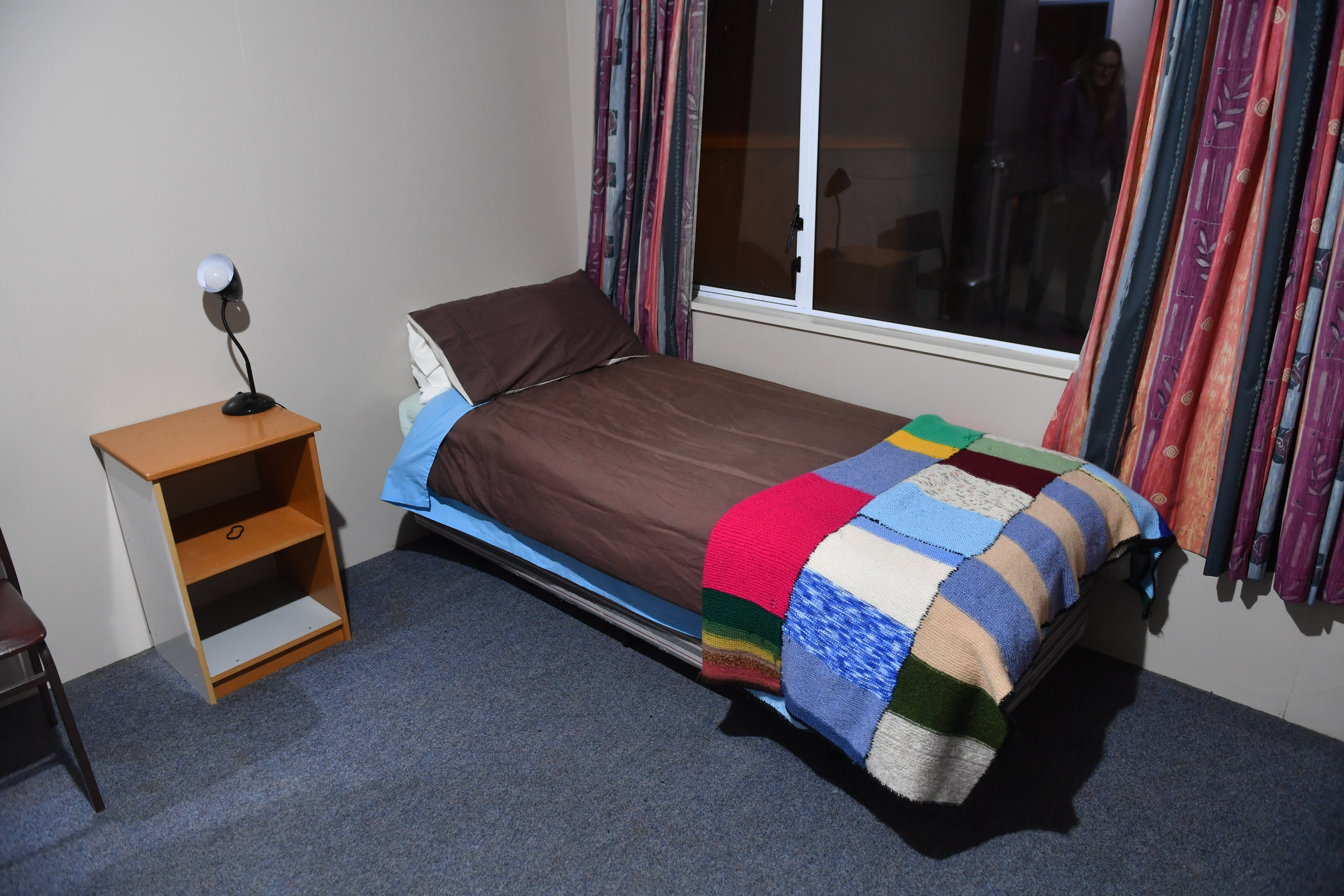
The night shelter feels a safe, inviting space, a world away from the cold, harsh streets.
"We aim to be homely, not an institution," shelter manager David McKenzie says.

A big bowl of apples sits on the coffee table - mainly for decoration not eating, Mr McKenzie admits. Apples are a challenge for people with missing teeth.
Mr McKenzie says dental problems are among many physical and mental health challenges faced by homeless people using the shelter, along with intellectual disability, addictions and criminal backgrounds.
The needs are complex - but the shelter’s job is to provide immediate necessities. It delivers emergency accommodation plus breakfast, a packed lunch and an evening meal. Homeless people can stay for five nights, although there is some flexibility in certain circumstances.
The evening meals are a community effort. A group of hunters called Common Good Hunters supplies free meat.
Group spokesman Joe Morrison said the hunters supported the shelter because we "aspire to live in a society that treats the vulnerable with respect, understanding and compassion".
The charity SuperGrans transforms the meat and other donated groceries into hot dishes, which are served up by friendly night shelter staff and volunteers.
A firm favourite is pie - tasty, comforting, filling and soft.
Sometimes, the shelter has to turn people away. Its fundraising campaign - to increase its capacity from six to 12 beds, which will require building alterations to bring it up to code standards - will also provide an accessible bedroom and bathroom for people with mobility challenges.
The shelter’s kitchen will also get a much-needed refurbishment.
The funding is vital - but will not fix the problem of where homeless people go after their time here. Many need specialist support as well as a roof.
Mr McKenzie summarises Dunedin’s homelessness crisis - and the need for the night shelter - as a "crazy" consequence of a "broken" system that does not provide the necessary social housing and support for some of its most vulnerable people.

Due to the lack of appropriate social housing and services, the shelter finds itself often leaning on a few private property landlords who offer shared accommodation at a decent standard.
It was understandable, however, that these landlords were "choosy" about who they would take, as they were not social services, Mr McKenzie said.
Those people who needed the most help were "the lowest on the ladder" and found it hardest to get anywhere. They "yo-yoed" from place to place, remaining homeless.
Homeless people arrived at the shelter with wide-ranging medical issues, including wounds, injuries or lack of bowel control. Some homeless people needed the most basic help, such as taking daily medications.
Sometimes, an ambulance had to be called. The free health centre Servants - which was crying out for more doctors at present - was also a vital partner to the shelter, Mr McKenzie said.
There was a huge "downstream effect" when people with such significant needs were not helped beyond their time in the shelter, affecting emergency services, health services and the prison service.
Sometimes, because of the shelter’s guests’ illnesses, there was an urgent need in the shelter to deep-clean carpets or throw away bedding.
Mr McKenzie said the shelter was very grateful for gifts in kind such as clean bedding, but stressed the presiding need right now was dollars to fund the expansion of bed numbers.
A Givealittle page has been set up for the shelter.













